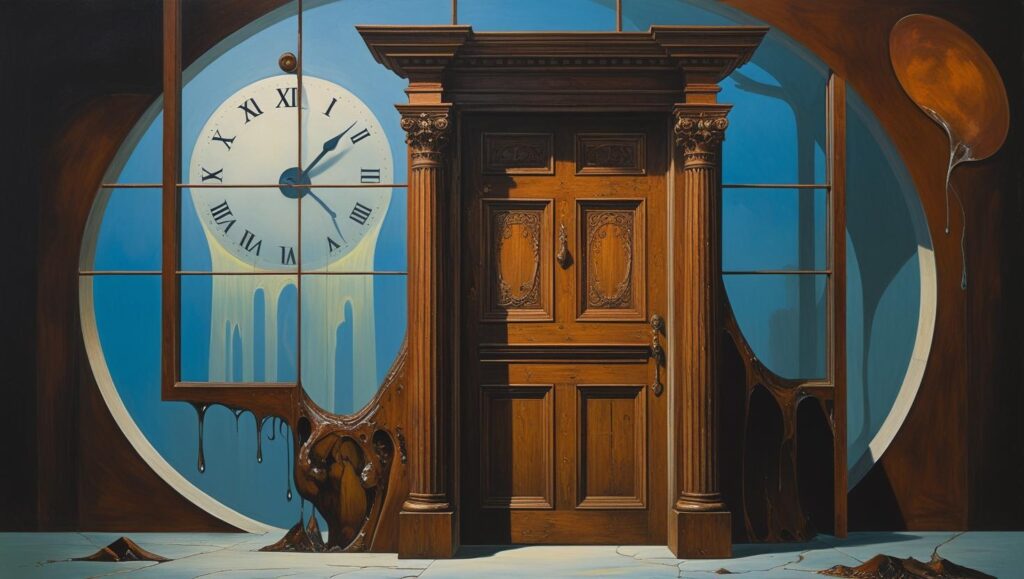
You make a better door than a window!
THEY GET ALONG LIKE A HOUSE ON FIRE!
Eles se dão muito bem!
LET’S GO OUT AND PAINT THE TOWN (RED)!
Vamos sair e cair na farra!
EVERY ROSE HAS ITS THORN.
Não há rosas sem espinhos.
I CROSS MY HEART (AND HOPE TO DIE)!
Eu juro, estou falando a verdade!
I CAME DOWN ON HIM LIKE A TON OF BRICKS!
Eu caí matando em cima dele!
YOU MAKE A BETTER DOOR THAN A WINDOW!
Você está bloqueando minha visão!
keep digging—you’ll find more insights below.
THEY GET ALONG LIKE A HOUSE ON FIRE
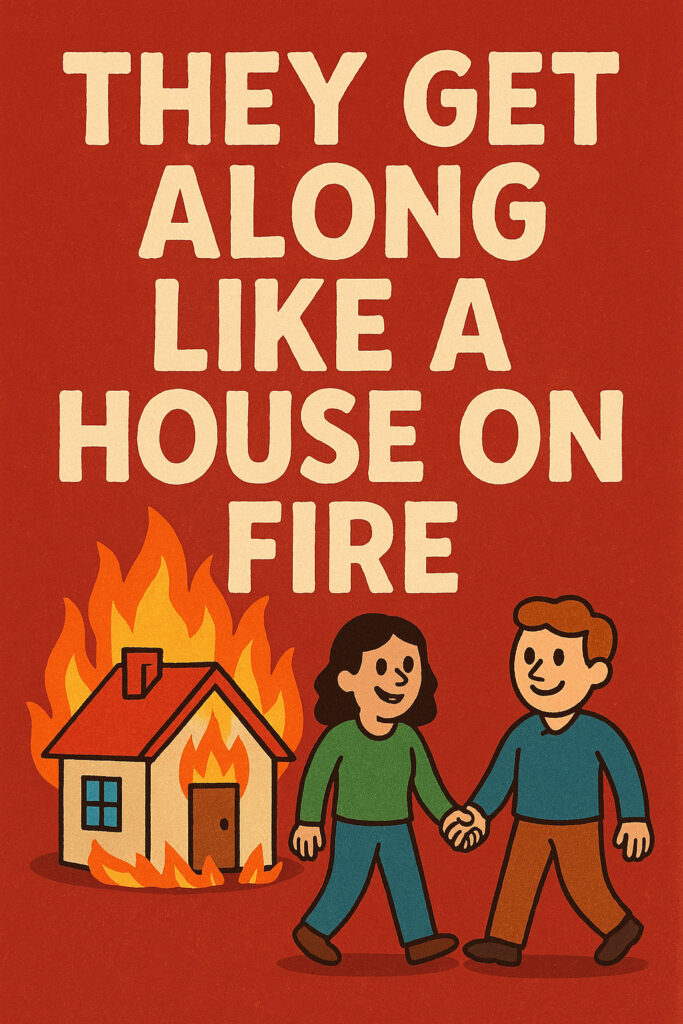
The expression “they get along like a house on fire” means that two people become good friends very quickly and have a great relationship. It suggests instant connection, lots of enthusiasm, and strong compatibility — like a fire that spreads quickly and intensely.
Even though it mentions fire (which can sound negative), the meaning is completely positive.
✅ Example Meaning:
- “When Sarah met Tom at the party, they got along like a house on fire.”
→ They became friends instantly and talked for hours like they’d known each other for years.
🔥 More Examples:
- “My dog and my new cat get along like a house on fire — I didn’t expect them to be so friendly!”
- “As soon as the two kids met at school, they got along like a house on fire.”
- “My sister and her new boyfriend get along like a house on fire — they’re always laughing and having fun.”
- “I was worried about meeting my new coworkers, but we got along like a house on fire from day one.”
LET’S GO OUT AND PAINT THE TOWN (RED)!
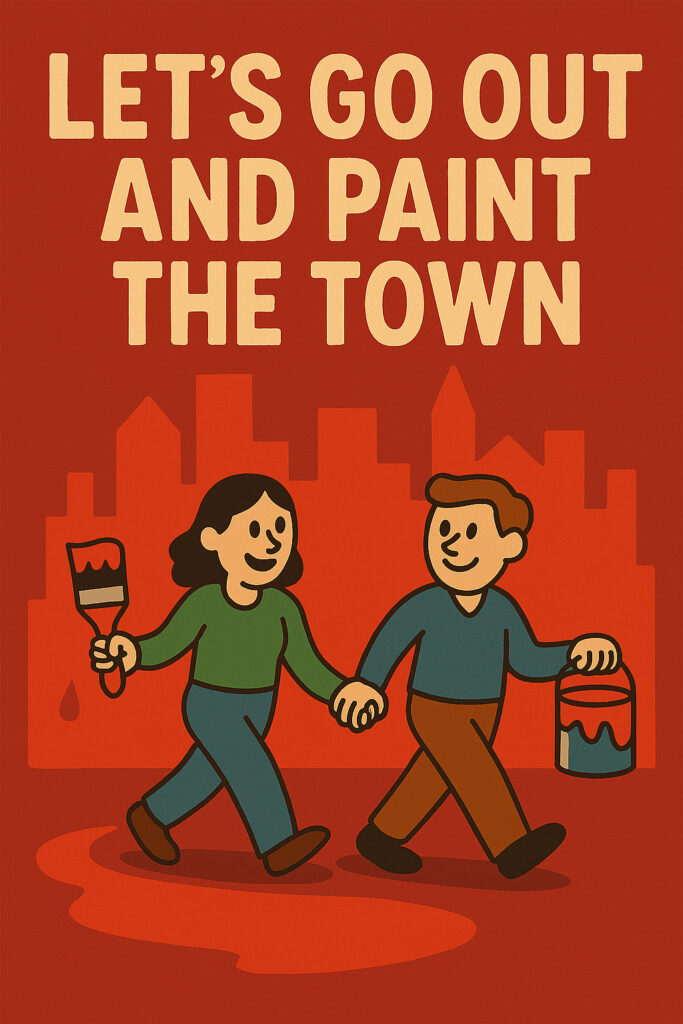
The expression “Let’s go out and paint the town (red)!” means:
➡️ Let’s go out and have a wild, fun night — usually with partying, dancing, or celebrating.
It’s often said when someone is in the mood to celebrate, especially with friends, and suggests doing something exciting or even a little crazy.
The word “red” adds extra color and intensity, but even without it, “paint the town” still has the same idea.
✅ Example Meaning:
- “We finally finished the big project — let’s go out and paint the town red!”
→ Let’s celebrate in a big, lively way.
🎉 More Examples:
- “It’s your birthday! We’re going to paint the town red tonight!”
- “They went out to paint the town after winning the game.”
- “After getting promoted, he called his friends and said, ‘Let’s paint the town!’”
- “We haven’t had a girls’ night in ages — let’s paint the town red this weekend!”
EVERY ROSE HAS ITS THORN
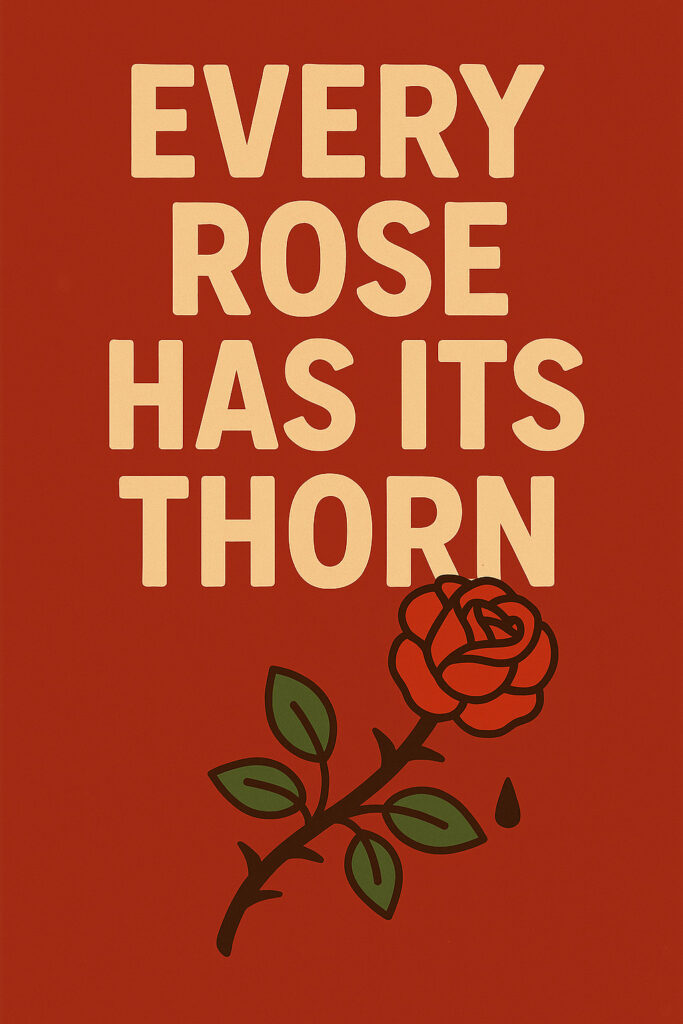
The expression “Every rose has its thorn” means:
➡️ Even the most beautiful or good things have some negative side or flaw.
A rose represents something lovely or desirable, but a thorn is painful — so the saying reminds us that nothing is perfect, and beauty or happiness often comes with a little pain or difficulty.
✅ Example Meaning:
- “Their relationship seems perfect, but every rose has its thorn — they argue a lot behind the scenes.”
→ Even something that looks ideal has problems.
🌹 More Examples:
- “I love my new job, but the commute is terrible. Every rose has its thorn.”
- “Fame sounds great, but being constantly followed by paparazzi? Every rose has its thorn.”
- “He’s charming and talented, but also very moody. Every rose has its thorn.”
- “Living abroad is amazing, but I miss my family. Every rose has its thorn.”
I CROSS MY HEART (AND HOPE TO DIE)

The expression “I cross my heart (and hope to die)” is a strong way to say:
➡️ “I promise” or “I swear I’m telling the truth.”
It’s often used when someone wants to show they are completely honest or serious about a promise. The full version “I cross my heart and hope to die” adds drama, like saying, “I’m so serious, I’d rather die than break my word.”
✅ Example Meaning:
- “I didn’t tell anyone your secret — I cross my heart and hope to die.”
→ I truly promise I kept your secret.
🤞 More Examples:
- “I cross my heart, I’ll be there on time.”
- “I didn’t eat the cake, I swear! Cross my heart!”
- “Cross my heart and hope to die — I would never lie to you.”
- “You can trust me, cross my heart.”
Note: This phrase is often used by children too, and sometimes in a playful or dramatic way.
I CAME DOWN ON HIM LIKE A TON OF BRICKS
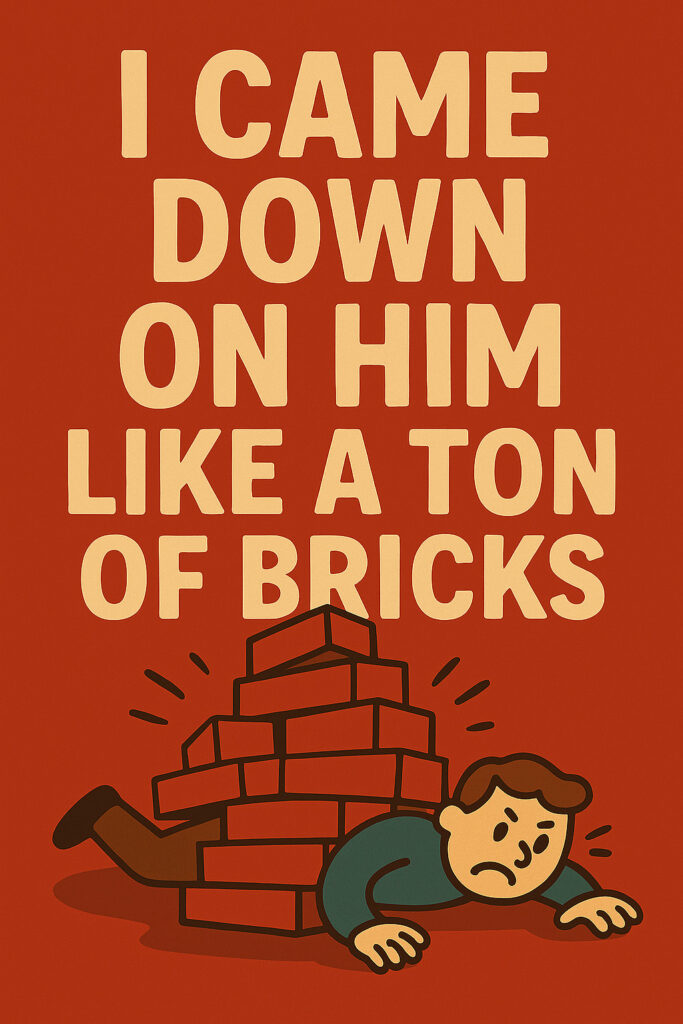
The expression “I came down on him like a ton of bricks” means:
➡️ I scolded or punished him very harshly and suddenly.
It paints a picture of something very heavy and forceful falling — in this case, the speaker’s anger or criticism. It’s used when someone is very strict, angry, or severe in their reaction to something wrong.
✅ Example Meaning:
- “When I found out my son lied to me, I came down on him like a ton of bricks.”
→ I got extremely angry and punished him severely.
💥 More Examples:
- “The boss came down on her like a ton of bricks for missing the deadline.”
- “He forgot their anniversary, and she came down on him like a ton of bricks.”
- “If you break the rules again, the teacher will come down on you like a ton of bricks.”
- “The government came down on the company like a ton of bricks after the safety violations.”
YOU MAKE A BETTER DOOR THAN A WINDOW
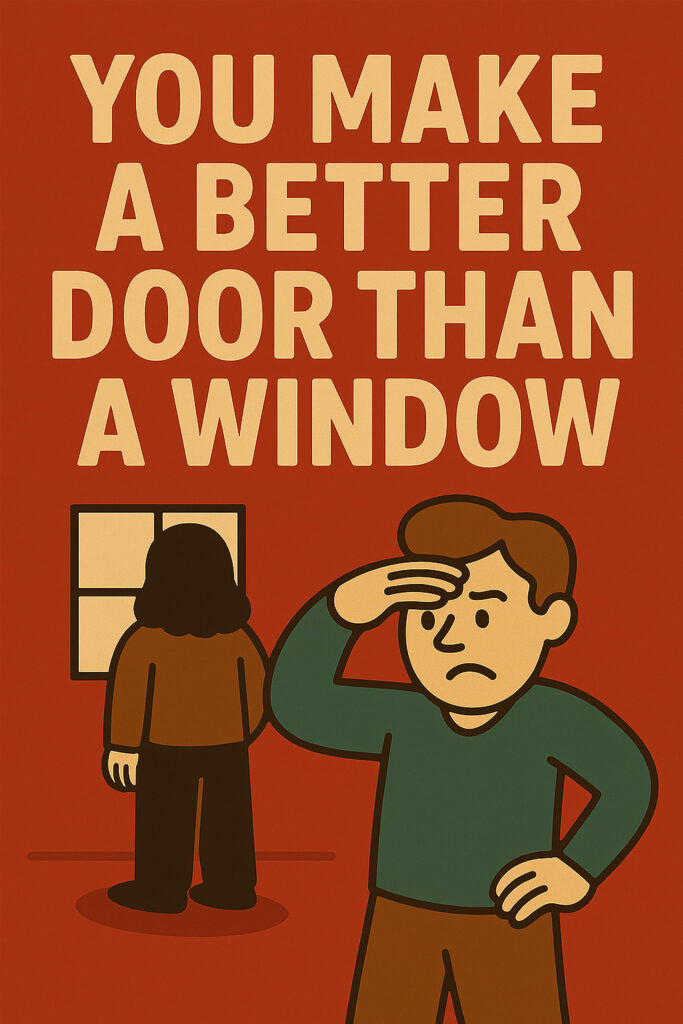
The expression “You make a better door than a window” is a humorous and slightly sarcastic way to say:
➡️ “You’re blocking my view — I can’t see!”
It’s usually said when someone is standing in front of the TV, a screen, a window, or something you want to look at. Since a door blocks and a window lets you see through, calling someone a “better door” means they’re in the way!
✅ Example Meaning:
- “Hey, can you move to the side? You make a better door than a window!”
→ You’re blocking my view — please move.
😂 More Examples:
- “Excuse me, but you make a better door than a window — I’m trying to watch the movie.”
- “Move over! You’re standing in front of the game. You make a better door than a window.”
- “He stood right in front of the TV, and I told him, ‘You make a better door than a window!’”
- “Every time someone blocks the screen in class, the teacher says, ‘Better door than a window!’”

